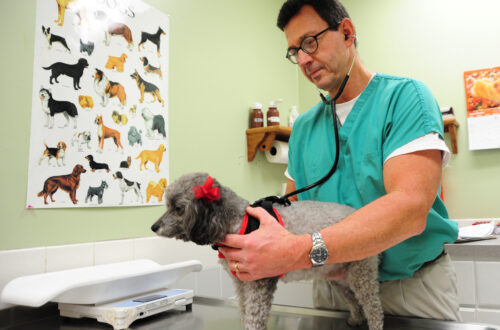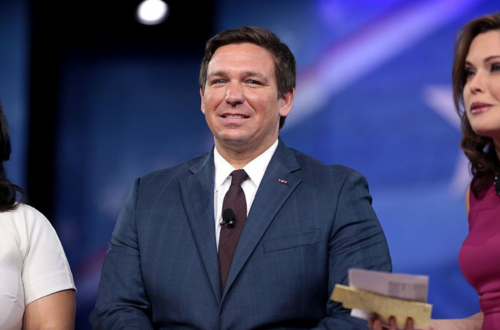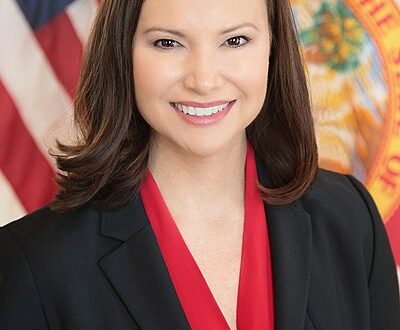In light of Roe v. Wade being overturned by the U.S. Supreme Court over a month ago, some University of Florida students are worried about accessing reproductive health products, tests and procedures, such as abortion and birth control.
Isabella Contopoulo, the secretary of UF College Republicans, said many students think of abortion as a “last resort they can use.”
“In the end, it was a lack of judgment, and they went through the process of not using things such as birth control and protection,” Contopoulo said.
Neither birth control nor condoms are 100% effective. According to Healthline, birth control is 91% effective, and condoms are 98% effective.
“Women know the consequences in the end,” Contopoulo said.
The Planned Parenthood regional organizer of Gainesville, Kai Christmas, said that accessing reproductive health care is a struggle for many students because of the lack of health insurance.
Without health insurance, yearly check-up exams, sexually transmitted disease testing and general reproductive health-related appointments may not be accessible.
“We are going to see these situations get worse, [and] these accesses get even worse,” said Christmas.
The overturn of the precedent set by Roe v.Wade has left the legality of abortion to be decided state by state. According to Christmas, in states restricting access to abortion care, there is talk of limiting access to birth control.
“We are expecting this huge onslaught of attacks on reproductive rights in Florida’s legislative sessions,” said Christmas.
In April, Florida passed a 15-week abortion ban, which means abortions will not be allowed after 15 weeks.
The law was supposed to take effect on July 1; however, Florida Judge John C. Cooper declared the ruling unconstitutional and blocked it. Shortly after, Gov. Ron DeSantis appealed the judge’s order.
Mississippi passed a 15-week ban in 2018 that was brought to court. That case moved up to the Supreme Court, where the decision on the case — Dobbs v. Jackson Women’s Health Organization — led to the overturn of Roe.
Mississippi is also one of the 13 states with a trigger law to ban abortions completely. Trigger laws are acts that states have preemptively passed to ban abortions once Roe v. Wade has been overturned. Florida didn’t have a trigger law.
In the wake of the new reproductive rights landscape in Florida, Contopoulo said she hopes the UF Infirmary will still provide condoms and birth control for students.
The UF Student Health Care Center said it still plans to supply condoms, birth control and menstruation products for the foreseeable future.
“Sexual reproduction education for students is so important,” Contopoulo said, “I believe many students haven’t been told the truth about everything from fertilization to the womb.”
Influencing uneducated or vulnerable people is a practice used by crisis pregnancy centers, according to Christmas.
Crisis pregnancy centers offer free pregnancy testing, sexually transmitted infection testing and more. Four clinics have opened in Gainesville in the past few years, which are religiously backed institutions as evidenced by their affiliations “with evangelical Christian networks and national antiabortion organizations,” according to the National Library of Medicine.
Christmas said the crisis pregnancy centers in Gainesville aim to “lure in pregnant people and try to persuade them against accessing abortions” even if that was “their original intention.”
“When you learn about [the crisis clinics], it blows you away. It makes you think, how are these places allowed to exist?” Christmas said.
During such a confusing time for many college students, UF College Republicans President Matt Turner, recommends that students join the larger conversation on abortion in Florida by voting.
“It’s time to have those conversations. It’s time to contact representatives and make our voices heard,” he said.
For those who want to be active in this fight, Christmas also recommends voting and paying attention to legislative politics in Florida.
“When the legislative session comes around, be active, call your legislators [and] demand no restrictions on reproductive rights, on abortion, on birth-control [and] on sex education,” Christmas said.
The next legislative session will begin on March 7, 2023, according to the Florida Senate calendar.
Check out other recent articles from the Florida Political Review here.
Featured image: Protestors at a Stop Abortion Bans Rally in Minnesota. Unmodified photo by Fibonacci Blue used under a Creative Commons License (https://bit.ly/3PMzpDR).





